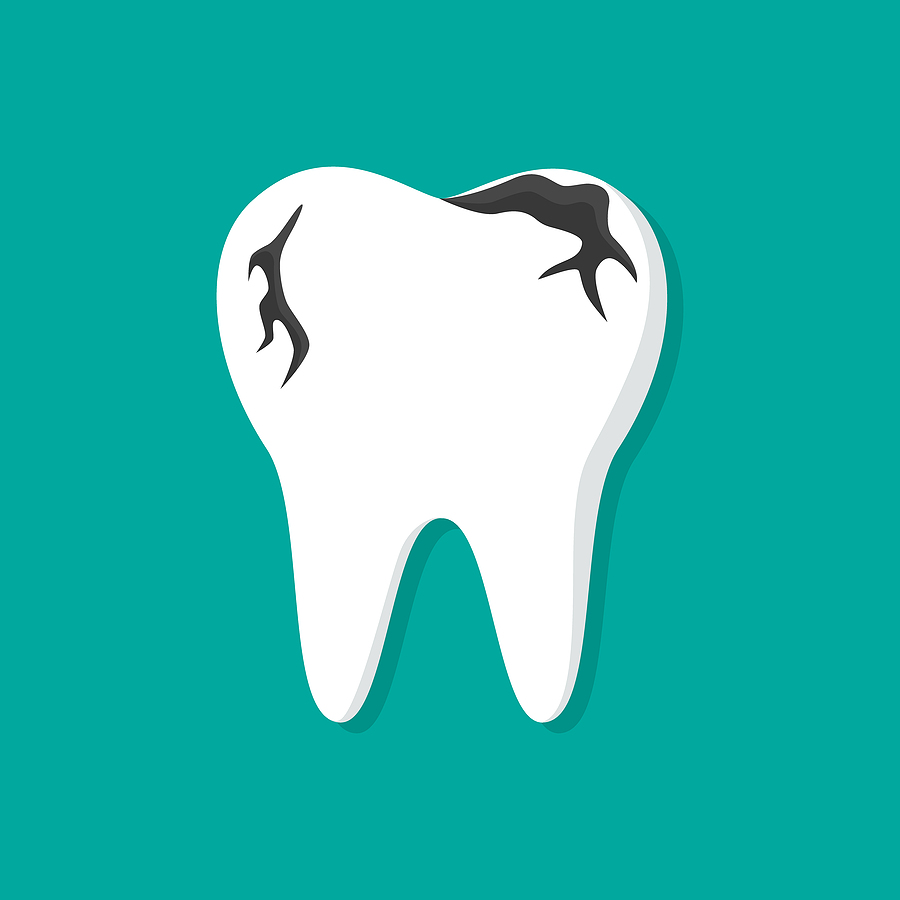Connecting the Dots: Exploring the Link Between Tooth Decay and Dementia Risk
Posted by Dr. Varghese John Feb 22, 2024

In recent years, researchers have uncovered a growing body of evidence suggesting a potential link between oral health and cognitive function. One intriguing aspect of this research is the association between tooth decay and the risk of developing dementia. While the connection may seem surprising at first glance, closer examination reveals plausible biological mechanisms that warrant further exploration. In this detailed analysis, we will delve into the emerging research on this topic, examining the potential pathways linking tooth decay to dementia risk and the implications for oral health and overall well-being.
Understanding Tooth Decay and Dementia
Tooth decay, also known as dental caries or cavities, is a common oral health condition characterized by the gradual breakdown of tooth structure due to bacterial activity. If left untreated, tooth decay can lead to pain, infection, and tooth loss. Dementia, on the other hand, refers to a group of progressive neurological disorders that affect memory, cognition, and behavior, with Alzheimer's disease being the most common form.
Emerging Research on the Link
While the relationship between tooth decay and dementia is still being explored, several studies have suggested a potential association between the two conditions. A study published in the Journal of the American Geriatrics Society found that older adults with fewer natural teeth or untreated tooth decay had a higher risk of developing dementia over a 12-year period compared to those with better oral health. Another study published in the Journal of Alzheimer's Disease reported a correlation between gum disease and cognitive decline, further highlighting the potential link between oral health and cognitive function.
Potential Pathways
Several mechanisms have been proposed to explain the association between tooth decay and dementia risk. One theory suggests that chronic inflammation associated with gum disease and tooth decay may contribute to the development of systemic inflammation, which in turn can increase the risk of cognitive decline and dementia. Additionally, oral bacteria associated with periodontal disease have been found in the brains of individuals with Alzheimer's disease, suggesting a possible role in the pathogenesis of the condition. Furthermore, poor oral health may lead to nutritional deficiencies and inadequate dietary intake, which are known risk factors for cognitive impairment.
Implications for Oral Health and Overall Well-being
The potential link between tooth decay and dementia risk underscores the importance of maintaining good oral hygiene and seeking timely dental care. Preventive measures such as regular brushing, flossing, and dental check-ups can help prevent tooth decay and gum disease, reducing the risk of associated complications. Additionally, addressing oral health issues promptly may have broader implications for overall well-being, including cognitive health and quality of life.
Furthermore, healthcare providers should consider the oral health status of their patients when assessing dementia risk and implementing preventive strategies. Incorporating routine dental screenings and oral health education into geriatric care protocols may help identify individuals at risk for cognitive decline and promote early intervention.
Tips for Maintaining Good Oral Health to Reduce Dementia Risk
Maintaining good oral health is crucial not only for a bright smile but also for a healthy mind. In order to reduce the risk of dementia, it's essential to prioritize your dental care routine. Start by brushing your teeth at least twice a day with fluoride toothpaste to keep those pesky cavities at bay.
Don't forget to floss daily to remove plaque and food particles that can lead to gum disease. Regular visits to the dentist in Sugar Land, TX, are key in catching any issues early on and maintaining optimal oral health. Consider incorporating mouthwash into your routine for an extra boost in fighting bacteria and keeping your mouth fresh.
Eating a balanced diet rich in fruits, vegetables, and calcium can also benefit both your teeth and brain health. Limit sugary snacks and beverages that can contribute to tooth decay. Lastly, stay hydrated by drinking plenty of water throughout the day—it's not only good for your body but also helps wash away bacteria in your mouth.
By following these simple tips, you can take proactive steps toward reducing the risk of dementia while promoting overall well-being through good oral hygiene habits.
Conclusion
While the exact nature of the relationship between tooth decay and dementia risk requires further investigation, emerging research suggests a potential link between poor oral health and cognitive impairment. By understanding the potential pathways linking these conditions and addressing oral health issues proactively, healthcare providers can help mitigate the risk of dementia and promote overall well-being in aging populations. Ultimately, prioritizing oral health may not only preserve smiles but also safeguard cognitive function and quality of life in later years.
To learn more about us, visit Advanced Dentistry at 9920 U.S. Highway 90-A, Suite 100-C, Sugar Land, TX 77478, or call (281) 494-5600 and schedule an appointment. Our team will be happy to guide you!
Location
9920 U.S. Highway 90-A, Suite 100-C,
Sugar Land, TX 77478
Office Hours
MONBy appointments only
TUE - THU8:00 am - 5:00 pm
FRI8:00 am - 4:00 pm
SAT - SUNClosed




